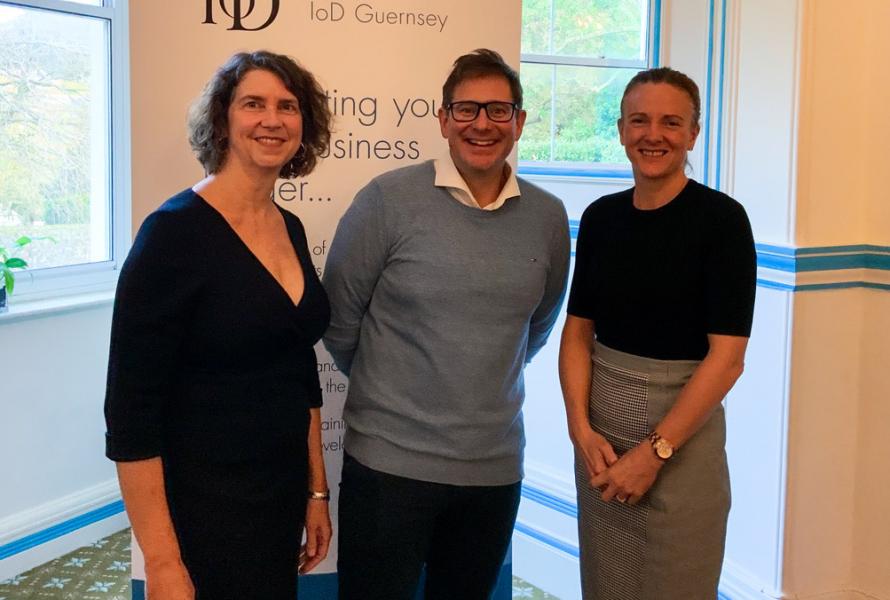
The IoD’s October seminar, sponsored by Butterfield, discussed how directors and business leaders can better equip themselves to navigate the sustainable business agenda.
Sally Rochester and Jennifer Strachan, IoD committee members and sustainability advocates, provided an overview of the chapter zero board level toolkit available to support directors of the business and the key drivers and benefits of enhanced non-financial reporting.
Jennifer Strachan opened the seminar by explaining that a sustainable business is an enterprise that has minimal negative impact, or potentially a positive effect, on the global or local environment, community, society, or economy. Jennifer noted that this was sometimes expressed as the “triple bottom line” - social, environmental and financial – “People, Planet, Profit”.
Climate change is the most immediate and pressing topic on the sustainable business agenda. The States of Guernsey and the UK government have set a target of 2050 by which to meet net-zero emissions, and more recently China has set 2060 as an ambitious target to do the same.
As the UK gets ready to host the UN Climate Change Conference (COP-26) next year, Jennifer explained pressure is building from investors, governments and stakeholders to ensure businesses play their part in meeting the climate challenge.
Climate change may be the trigger but sustainability is the end goal. Jennifer Strachan discussed what support there is for boards in terms of policy, strategic decisions, investment decisions, asset values and reporting.
Jennifer discussed the Chapter Zero resource for directors, which is a toolkit to help boards to hold informed and strategic discussions and respond effectively to the climate change challenge.
Explaining why it is important for boards to disclose data related to climate change and other sustainability issues, Sally said that directors are in a unique position to connect sustainability with corporate purpose and strategy. She presented the many disclosure requirements that are required, or will soon be required in response to stakeholder demands for transparency of this data.
Once the value of sustainability is established, the business case for the critical importance of its disclosure will naturally follow. Careful consideration of the needs of a broader universe of stakeholders ultimately drives value for shareholders, and directors have an opportunity to use transparency to promote more effective engagement with investors.
Sally and Jennifer then discussed how these demands for data are important considerations for Guernsey entities that may not yet be required to disclose, and indeed how important the collection and disclosure of data is for the States of Guernsey as they work towards the island’s environmental targets, including becoming net zero. These targets also provide opportunities for innovation in both the private and public sector to contribute to solving many of the world’s sustainability challenges.
IoD Chair John Clacy commented on the importance of this subject in the wider corporate landscape. As a partner at Deloitte, he explained that over the summer months all staff had to dedicate considerable time to undertake learning and training on the topic. He said that if companies such as Deloitte were putting this at the heart of their business, this demonstrated the importance of this topic.
The presentation from the IoD's latest breakfast seminar can be found here.
